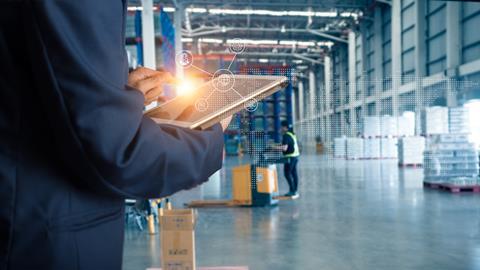After decades of underinvestment, we are now in a golden era for technology in real estate.

The past few years have seen innovations in business models, technology and operations that have been particularly apparent in the office, retail and residential sectors. Until now, however, the changes in the industrial sector have been less discernible.
Over recent years, the industrial customer base has diversified and operations within warehouses have become more sophisticated, but the physical envelope – the warehouse itself – has not evolved at the same pace. Now is the time to make warehouses smarter.
This autumn, we plan to run a series of smart warehouse pilots across our portfolio to test and demonstrate the benefits to customers, communities, the environment, building users and ourselves.
We are in discussion with customers in the UK and the rest of Europe about introducing the latest generation of sensors at their facilities to deliver real-time data on utilisation and the environmental, energy and plant performance of their buildings. This is complementary to the operational data many of our customers already collect.
This data will give our customers and us better visibility and understanding of the performance of the building, enabling better decisions, which will have multiple benefits.

For our customers, the data should improve the operational and energy efficiency of the building, reducing both emissions and costs. A better understanding of space utilisation and environmental conditions should also lead to a better working environment, positively impacting employee wellbeing and productivity.
Lower emissions, better environmental performance and a better working environment should in turn make a smart industrial building more sustainable and attractive to local communities. And for owners, it should support sustainability, customer retention and leasing objectives and protect long-term value.
Not surprisingly, smart buildings produce a lot of data, but without insight it is worthless. So it is vital that any smart building owner or operator also invests in data and analytics capabilities.
Collaboration between the industrial property and tech sectors will be essential as we look to advance and embed new technology. In addition to partnering with Concrete VC, earlier this year SEGRO became one of the first companies outside the US to invest in Fifth Wall’s Fund II, which brings together property owners and the next generation of built-world entrepreneurs.
If the industrial property sector doesn’t want to get left behind, now is the time to take that leap forward and ensure our customers and the sector as a whole can benefit from the technology revolution.
James Power is director of digital and technology at SEGRO
Industrial & Logistics supplement September 2019
- 1
- 2
- 3
- 4
 Currently reading
Currently readingSector needs to be smarter about tech
- 5
- 6
- 7
- 8
- 9
- 10
- 11








































No comments yet